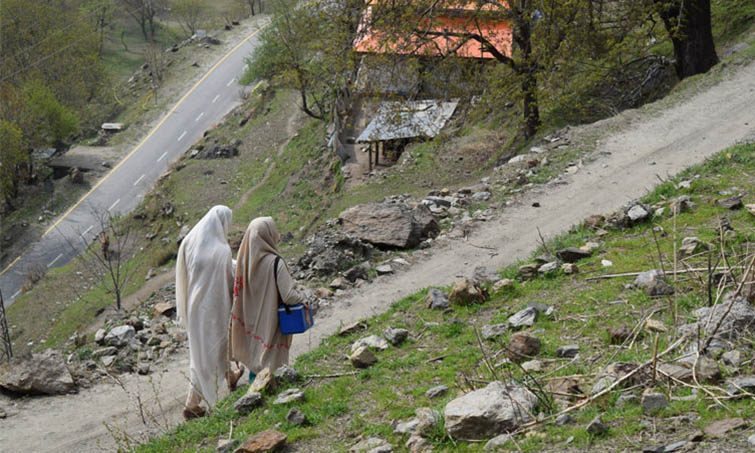30 year old Mamlikat is a resident of Shangla district, Khyber Pakhtunkhwa, and has been working as a Lady Health Worker (LHW), under National Programme for Family Planning and Primary Health Care since 2001. While not all LHWs are involved with the Polio Programme, Mamlikat is the only one in her area who agreed to take up the additional duties. Since then, she says she has never missed a single child in any polio campaign.
The Pakistan polio programme has come a long way towards building a future, in which polio no longer endangers children, families, and communities. The programme progress can be seen in the declining number of wild poliovirus (WPV) cases: from 306 cases in 2014, to 54 in 2015, and 20 in 2016. As of September 2017, the total number of WPV cases reported in Pakistan stands at five. One of the backbones of the polio eradication programme progress in the past years has been the use of local, trusted members of communities during vaccination campaigns, known as Community Based Vaccinators (CBVs). Mamlikat is one of the thousands of CBVs who work tirelessly and selflessly in all weather conditions and across all terrains to ensure that each child in every community is vaccinated and fully protected from polio.

Shangla is a mountainous and difficult area to work in, as it requires a lot of climbing. Because of this, most female health workers refuse to work here. Mamlikat, however, has a zest and passion to ensure every child in her community is vaccinated. Her commitment to work can be assessed from the fact that in past eight years she has not taken any leave from work even once
Mamlikat, while on her duty, claims to have developed a bond with children of her community as she visits 40 to 50 houses on each day of a campaign to vaccinate approximately 100 to 130 children in these houses. Sharing her experience, Mamlikat said, “I can tell you the name of any child up to the age of 10, as over the years, I have been vaccinating them all myself.” Further as she talks about her drive for polio eradication, Mamlikat adds, “They are like my own children and I cannot see anyone of them be paralyzed owing to polio virus.”
It takes approximately two hours to only reach the highest peak of the mountain, and even longer to reach the last house in the area. However, Mamlikat and other workers like her are reaching every last house, and every last child in every campaign. It is thanks to the efforts of frontline workers like Mamlikat that Pakistan has come so close to the target of zero.
